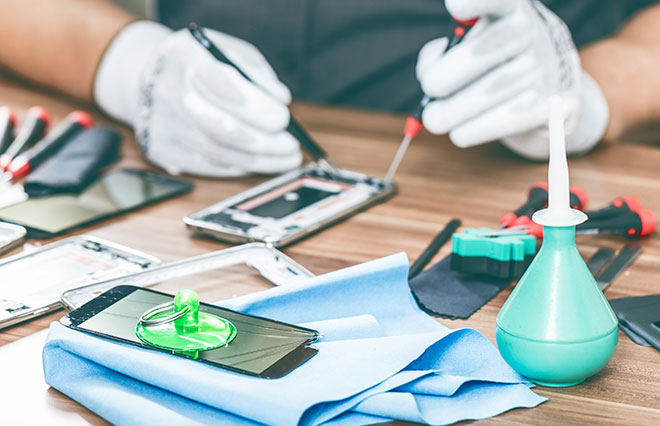With device technology changing so quickly, items like tablets, laptops, computers, monitors and mobile phones have a worryingly short life before mostly being sent to landfill. Every UK resident generates a little less than 30kg of E-waste every year and only around 20% of this is currently being recycled. No wonder individuals and companies are starting to show a greater interest in electronics sustainability and are giving E-waste greater consideration. Read on to discover the different choices you have when disposing of electronic equipment and decide if working with a professional recycling company like TEKrefresh is the best fit for you.
- Data is king – always recycle securely
It’s essential that in deciding to recycle IT equipment that you don’t inadvertently take risks. Our computers, laptops and mobile phone store a wealth of valuable data on them including passwords, account numbers, license keys, addresses, phone numbers, correspondence and other business critical documentation. You must carefully consider what needs to be done to effectively and securely remove all of this information. When making up your mind you can jot down a handful of risk scenarios and estimate the financial impact of each of these then compare it to the cost of outsourcing the project. If you don’t know what you’re doing or the data is particularly valuable or commercially sensitive, you’re always much safer working with experts.
- Using council refuse services
When establishing if items can be recycled ask yourself these simple questions; does it have a plug, does it use batteries and does it need charging? If any of your answers are yes then recycling is indeed a possibility. If the units aren’t working you might well be tempted to investigate your Local Authority’s policy on the inclusion of E-waste in your kerb side collection or find out if using the local tip is an option. This is clearly a cheap and cheerful solution for managing low volumes but you could still be missing out on the opportunity of refurbishment and resale. Many waste sites in the UK opt to shred E-waste which is one of the least efficient way of extracting precious metals and also releases toxins. When it comes to the circular economy please bear in mind that reuse is always better for the environment than recycling.
- Give it don’t bin it
Following such a difficult 12-month period of intermittent lockdowns many charities are struggling more than ever to raise the funds they need to operate. This is further compounded by internal inefficiencies that are exacerbated by modern IT equipment being unaffordable. Hardware that has become redundant in terms of your company’s needs could represent a very welcome step-up for a voluntary organisation, especially if their staff are still working from home. Working with a refurbishment specialist can dramatically increase the practical value of your donation.
- Selling it back to your supplier
Many suppliers offer their customers a guaranteed buy back solution for when the equipment is no longer of use to them. The manufacturer will offer a per unit buy back price but be aware that when you return your kit it will be graded in terms of quality and the price per unit can be adjusted downwards accordingly. You need to be pretty savvy to get the best financial outcome from these programmes – whilst the headline prices look really attractive often the final payment ends up being less than you were expecting.
- What’s in it for them?
It’s worth being aware that many manufacturers are now marketing new equipment by disclosing how much of the manufacturing process has incorporated reclaimed materials. It’s entirely possible that in buying back your old devices they are securing resources for their own internal supply chain. Given this could be viewed as a conflict of interest, if you have a volume of units to recycle it’s well worth your while contacting us for a free independent appraisal to have in your back pocket during negotiations. Make no mistake - when big corporates are placing the circular economy center-stage of their strategic marketing you know that post-consumer recycling is making them some serious money.
- A TEKrefresh case study
A project we worked on for an existing client clearly demonstrates the potential financial loss of working directly with a manufacturer. We’d been supporting the devices so knew they were in pretty good condition. We were surprised when the manufacturer graded the first batch to the equivalent of our grade C as we’d have graded the majority of them at an A or a B. As the client had been offered fantastic rates for grade A and B but the value offered for grade C was very poor by comparison, the proposition started to look much less appealing. We stepped in and our final assessment was that 34% were grade A, 25% grade B and only 41% a grade C. The overall project gained our client over £65k in revenue compared to the £45k being offered by the manufacturer. So that’s 20,000 solid reasons to work with a specialist like TEKrefresh!
Click here to book your free review.
